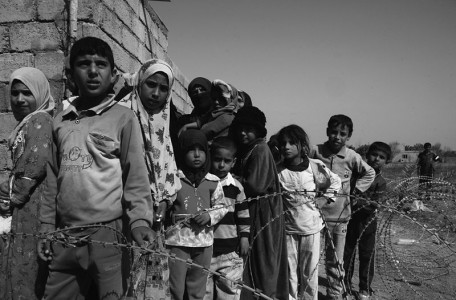In the earliest days after the War, Minerva had only one goal: survival. Many historians today will spout propaganda about the “glorious mission” and “divine calling” of Minerva in the “cultural, scientific and politically Rebirth” (from Minerva: Our glorious calling by John F. Anderson) as if the few hundred scientists, political refugees and ex-military personnel huddled in a bunker deep in the mountains of the ruined nation of Kyrgyzstan were excited about the end of civilization as they knew it. As if they weren’t worried about the impending nuclear winter making it nearly impossible to grow any food, or about the extremely high levels of latent radiation they were exposed to on a daily basis.
Less than 100 years after the War and Minerva’s origins are already shrouded in mystery and legend. The official propaganda taught by Oculus is unchallenged, and any contradictory evidence has been removed by the official Archives. It was with great effort that I found the following fragments referring to the time now known as “The Rebirth.” Read more
Related posts:
- The Rebirth - Part 3 In the earliest days after the War, Minerva had only one goal: survival. Many historians Read more...
- The Rebirth - Part 1 Some historians may write of 2020s as a decade of death, destruction and war, and Read more...
- Aegis - Part 1 The history of Aegis is actually quite interesting. In the early days after the War, Read more...
The Rebirth - Part 1
Some historians may write of 2020s as a decade of death, destruction and war, and they’d be right. I, however, see this time as a period of necessary cleansing that prepared the way for the Rebirth. The culture, economy and technology of the time were slowly killing the planet. Reliance upon fossil fuels and nuclear power for energy was unsustainable, unhealthy and dangerous. The destruction of the times was a direct consequence of the way technology was used in pre-Rebirth culture. Their recognition of the sickness of the world’s culture is what led the Founders to organize Minerva.
Related posts:
- The Rebirth - Part 3 In the earliest days after the War, Minerva had only one goal: survival. Many historians Read more...
- The Foundation My recent research on the use of biological weapons at Nagasaki spurred my interest on Read more...
- The Rebirth - Part 2 Less than 100 years after the War and Minerva’s origins are already shrouded in mystery Read more...
- 11-4-13 Update: Prologue
- Final Relaunch Update - Nick has perfectionism issues
- Re-launch update 8-11-13
- Prelude to The War: The Middle Eastern Oil Crisis - Part 2
- Prelude to The War: The Middle Eastern Oil Crisis - Part 1
- Crossover Comic Dating Game: M9 Girls
- We got more fan art!
- Crossover Comic Dating Game: Rasputin Barxotka
- More fan art and opportunities for collaboration
- WIP World Map
Set in 22nd century Earth, over 100 years after the 3rd World War, the Demon Archives tells the survivors' stories as they struggle to rebuild civilization. In Book One, we'll meet the members of Minerva, one of the few high tech organizations that survived the War, and learn how they established a beacon of hope in the dreary wasteland of central Asia.
Minerva: Book One of the Demon Archives follows the story of Tenzin, a Minervan soldier, and his Oracle AI, Jane, as they fight to protect the ideals Minerva stands for in an increasingly chaotic world.
With a heavy basis in real science and technology with a healthy dallop of imagination, The Demon Archives will show you how life could be in a post-apocalyptic Earth.
